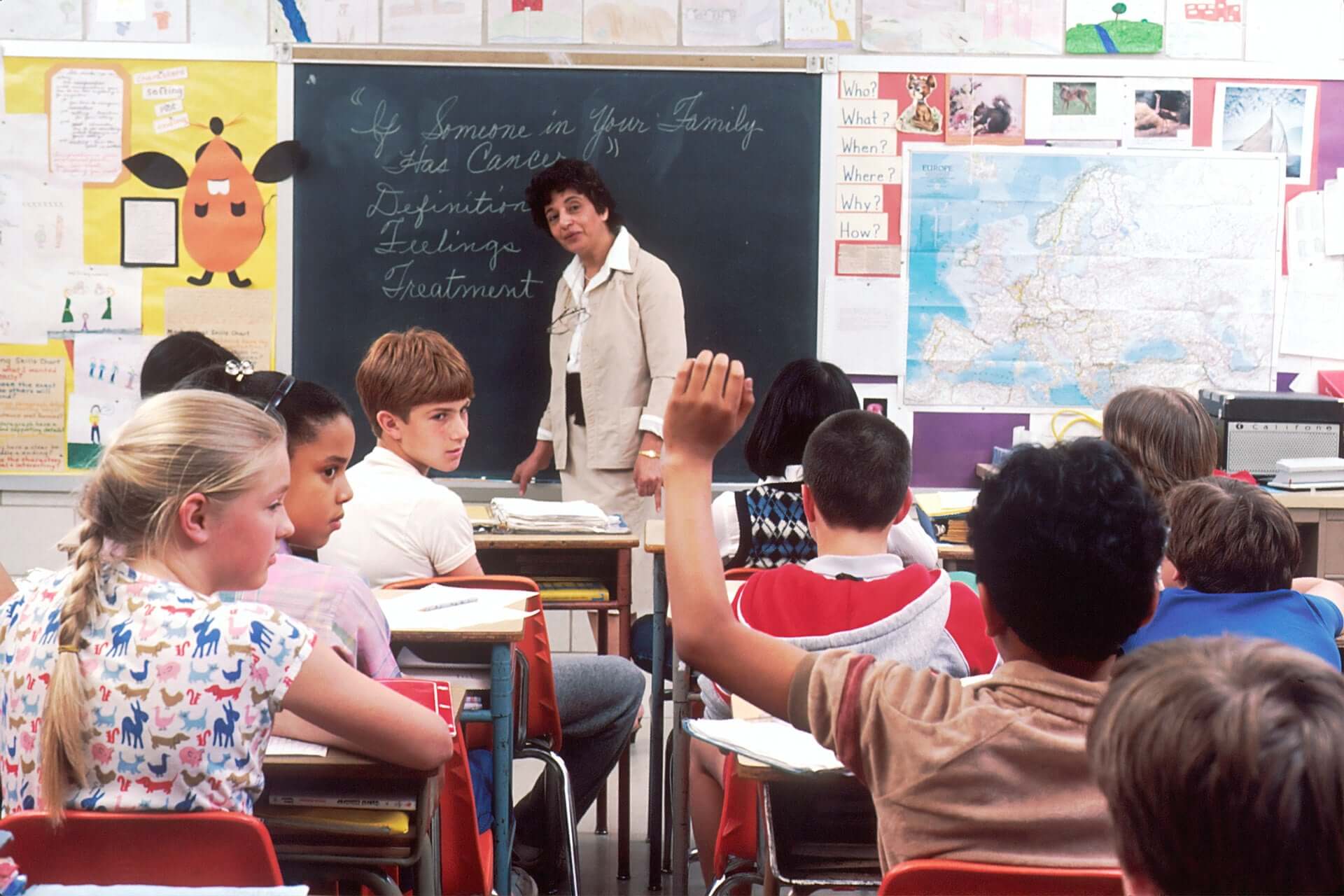
Table of contents
"You're not doing this for others, but for yourself!" – How parents can deal with pressure at school
Do we remember? There we sat obediently, squeezing the hard and uncomfortable chairs in the extremely boring math lesson - and from the beginning we were encouraged with: "You're not doing this for me or your parents, but for yourself."
When we were at school, did we really have an idea of what it means to make the decisions we make today for our future? Do we really care that our school grades can influence our careers - and do we understand that this annoying school stuff is something positive that we give ourselves?
I doubt it. We waited for the long-awaited school bell. And I venture a provocative thesis: We were right. Every student who comes to class with their own opinion and attitude towards school is right. Those who are eager to learn and work towards a high school diploma - but also those who would like nothing more than to finally stand in the smoking corner during the break.
How did I come up with such an absurd statement? Isn't our entire social and economic system built on the fact that the losers stand in the smoking corner and the winners do the extra homework? Aren't we taught from an early age that we have to function and that our future will be destroyed if we don't perform now and thereby stand out from the crowd?
Well, that's true. But the performance society has forgotten something: every person stands out from the crowd through different qualities. Great effort is made to categorize, judge and evaluate these differences, to label them as useful and useless and thus to keep the system running - but according to individual psychology, every person follows their life line, their secret goal, which, often unconsciously, controls their decisions and steers their life in a certain direction.
We follow our line
This explains why most students' well-intentioned advice fizzles out into the ether unabsorbed.
Our soul does not follow what is presented as wise and sensible from outside. We follow what our brain deems, based on our experiences, to be the safest way to achieve our secret goal in life: "Once I'm above everything, then..." "When I've managed to be invisible, then..." "When I'm the most beautiful woman far and wide, then..."
Our life goals are built on what we take with us from our childhood and want to help us fuel the hope that there will be a day X when we are happy and satisfied, having arrived.
It does not mean that these life goals are always wise, thoughtful and meaningful. They can also make us lonely and disconnect us from the community. But as young people who have not yet learned to reflect, we are not aware of this.
So our actions in childhood and adolescence follow our unconscious programming. School will therefore only succeed in “bringing us to our senses” if it either breaks our will or if the requirements correspond to the secret goal of life anyway, for example “Once I am the best at everything here, then I will finally be lovable”. Thus, a person's attitude towards the school always shows whether this system serves them personally or not.
It is extremely important to know that the motivation to learn, be inquisitive and create is present in every person. The desire for further development corresponds to our natural abilities. The approach of giving young people information from the outside that is not of interest to them only leads to short-term success. The information ends up in the short-term memory or serves the simple purpose of reaching the next grade level. But in terms of content, most of it passes us by.
The pressure still remains, right?
However, this reflection does not change the situation - schooling is compulsory and it cannot be denied that we can and should be grateful for our educational opportunities. What counts first and foremost is perspective. But this applies primarily to us adults. What can the young people do who go to school and can't easily get out of their skin and think it's terrible? What can we do to support them?
An important aspect is: pressure leads to nothing. As parents, we should first ask ourselves: Where do I feel societal, social or personal pressure that my child has to do this or that special thing at school? What demands do I project onto my child?
Next, it's wise to realize how many wonderful ways there are today to take the pressure off everyone's shoulders and leave a little more room to breathe:
Even if a student starts at secondary school, the path to high school and university studies is possible well into adulthood. I personally know a few people who completed their high school diploma as adults with families. The reassuring thought behind it: All is not lost if my child brings home bad grades. I can relax and approach the child with an open ear, love and understanding.
If the pressure in the family goes away, the pressure in the child itself may also go away. If the family is a safe place where love does not have to be earned through performance, it is often even possible to open up to the content of performance, because the child experiences both: It is not always comfortable, but I can also surpass myself. And there is a place where I can just be.
How can we spend time well?
As parents, we can always encourage our child to find their own way. It's not bad if it gets a six in math. It really isn't. Maybe it really never wants to have anything to do with mathematics. That's why it might be very good at art. Or vice versa.
We don't have to be good at everything. As humans, we can choose a niche in which we can show ourselves. Not everything else has to be perfect. Sayings like: "But you can't... but you have to..." have rarely proven to be helpful - both with children and with ourselves. It creates mental pressure, so the brain comes under stress, the synapses work more slowly and we achieve the exact opposite of what was originally desired.
Also enlightening: put school in the context of the rest of your life. What is it really about? What importance do you give to education in your value system? How much time do you want to invest in teaching your child other aspects of life that aren't taught in school? How can you pick up the child holistically and prepare them for life?
Have courage: Give the child inner freedom to decide for themselves what importance education should have in his/her life. “It can’t be,” you might object. True, but the child does it anyway, even without thinking about it. It stands for or against it, according to its life line.
Therefore, it is good to know that children actually always want to cooperate. Even if they remain in a rebellious attitude, the deeper desire behind it is actually just: “Let me be myself and experience myself in a safe relationship - but without us having to be apart.” This means that a relaxed career through school together is possible – and perhaps even enjoyable.
If you would like to learn more about family and pregnancy, mindfulness, nutrition or sustainability, Check out more exciting blog articles on these topics here.





























Leave a comment
This site is protected by hCaptcha and the hCaptcha Privacy Policy and Terms of Service apply.